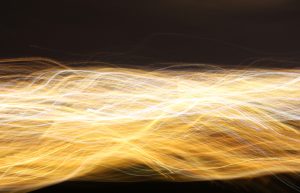 Psychiatric Disorders and Creativity: Is there a link?
Psychiatric Disorders and Creativity: Is there a link?
Think about it. Vincent Van Gogh. Virginia Woolf. Michelangelo. Beethoven. Robin Williams. Ernest Hemingway. Carrie Fisher. Anthony Bourdain.
Creative Genius.
There are hundreds, probably thousands more, who fit right in with this good company. Maybe you do, too.
Take John Nash, the Nobel prize-winning mathematician whose story is told in A Beautiful Mind.
Hallucinations, delusions, severe depression, fear, phobias, suicide… Psychiatric symptoms are all too familiar. But how often are they accompanied by creative thought, astounding accomplishments, and indescribable beauty…?
The simple answer to that question is probably more often than you think.
So what IS the connection between psychiatric disorders and creativity? Is there a link…?
A meta analysis by Christa L. Taylor, published in Perspectives of Psychological Science September 21, 2017, shows that researchers have used psychological tests, population surveys, and genetics to examine creativity in psychiatric illness, and vice versa. They’ve found measurably higher rates of creativity in people with bipolar disorder, as well as more cases of bipolar disorder in creative people.
Clearly, for every celebrity who’s been diagnosed with a psychiatric illness there are probably dozens who are pretty healthy and stable. (Although some would say that’s a bit hard to believe about Hollywood…!)
But doesn’t it appear so often that the really brilliant ones, spectacular performers in the arts, the math and sciences…seem to battle complicated symptoms …?
When you consider that the links researchers have found in visual arts,  performing arts, politics, business, religion, literature, music, and science translate to exceptional people all around you in school, work, and everywhere in between, it’s worth another look.
performing arts, politics, business, religion, literature, music, and science translate to exceptional people all around you in school, work, and everywhere in between, it’s worth another look.
Still, researchers have often found these connections in individuals with milder forms of bipolar disorder, such as bipolar II and cyclothymia. Their assumption was that the extreme mania of severe bipolar I disorder would interfere with creative thought.
On the other hand, we can’t ignore the great achievements of Beethoven, Winston Churchill, Abraham Lincoln, John Nash, Brian Wilson, Kurt Cobain, who all experienced severe forms of their disorders.
So here’s what’s interesting…
Psychiatric Disorders and Creativity: Clues in Your Genes
Bipolar disorder and schizophrenia actually share genetic origins with creativity. Interestingly enough, there are some symptoms of schizophrenia that are conducive to creative work. Isn’t that a surprise…?
So when someone has psychotic symptoms ….and is afraid to take medication to manage symptoms… you can sort of see where they’re coming from. But, it doesn’t mean we have to take an all-or-nothing perspective.
Burns Woodward, MD, in his article, Creativity and Psychiatric Illness: Finding the Sweet Spot, makes the point that if people who suffer with psychiatric disorders fear treatment because they don’t want to lose their creative thought, it’s important we listen to their perspective.
By listening, and collaborating in working with them, you can support their concerns and still encourage them to participate in a treatment plan that helps them function better and avoid hospitalization.
This is also good advice for families.
When families dig their heels in, convinced their loved one can’t make good decisions for themselves, the resistance on both ends of that battle usually leads to noncompliance.
But when the family finds a way to build harmony with their loved one’s concerns, treatment becomes a possibility. Their loved one can grow closer to cooperating with a treatment plan.
The Case of John Nash
Woodward also makes the point that in the case of John Nash, his fear of loss of creative thought led him to refuse medication. You can only wish he had had the chance to receive IV ketamine for depression. Ketamine treatment enhances creativity and it might have helped his courage with his antipsychotic medicines.
You see, it was only after he had received the Nobel Prize that he began  developing symptoms of schizophrenia.
developing symptoms of schizophrenia.
His distracting delusions and hallucinations prevented him from the intense focus necessary to do more significant work until after he’d been hospitalized a third time. He finally agreed to medication to manage his symptoms. And you know what? John created his only noteworthy mathematical work while he was taking that medication.
True.
But What if Medication Doesn’t Help?
There are currently medications that help some people who suffer from every form of psychiatric disorder. Be it depression, social anxiety, panic disorder, bipolar disorder, PTSD, OCD, schizophrenia, eating disorders…
But there are so many who receive no relief whatsoever from these medications. And those are the ones we focus on at Innovative Psychiatry.
You are someone we want to help.
Innovative Psychiatry dedicates focus and resources to help you experience relief and hope if you suffer from treatment-resistant psychiatric symptoms.
Ketamine Treatment Enhances Creativity
I can tell you straight up that if you do, ketamine treatment doesn’t work for everyone. It just doesn’t, and we don’t know why at this point. We know every brain is different, just like every face is different. Your brain is uniquely yours.
But what I can say is that we’ve seen extraordinary outcomes in the majority of  patients we treat. Ketamine treatment is more effective in more cases than any other medicine in our lifetime.
patients we treat. Ketamine treatment is more effective in more cases than any other medicine in our lifetime.
In the case of schizophrenia and schizoaffective disorder, ketamine is not the treatment of choice.
And yet, studies have found it to be very helpful in stopping suicidal thinking and relieving depression in patients with these disorders. Aziz Walid and his team published a case study in the Journal of Addiction Research and Therapy which demonstrated this.
So let’s talk about psychiatric disorders and creativity. If you’re afraid of medicating the disorder you live with because you’re afraid of losing your creative edge, be encouraged. Ketamine brings creativity back to life.
Ketamine treatment enhances creativity.
This is not an old-fashioned antidepressant that dampens your feelings, your emotions, or your creative thought.
Rather it renews, rejuvenates, and replenishes your creative pathways and signaling systems so you can think more, not less. Create new beauty, new prose, new ideas, and feel truly alive again.
So How Hard Is It To Find Ketamine??
Ok, so don’t get me wrong. Ketamine isn’t something you can pick up at the pharmacy. It’s a powerful medicine that should only be administered by a psychiatrist if it’s used to treat a psychiatric disorder.
What’s more, there are countless doctors providing it who really aren’t qualified to do so.
What Difference Does It Make…?
Because ketamine as an anesthetic is a medicine for anesthesiologists to administer to patients for anesthesia or for pain control.
But ketamine as a psychiatric treatment should be provided by seasoned  psychiatrists deeply experienced in treating life-threatening psychiatric disorders as well as suicidal inclinations.
psychiatrists deeply experienced in treating life-threatening psychiatric disorders as well as suicidal inclinations.
Psychiatrists equipped to provide ketamine are still rare. This treatment is best administered by an expert psychiatrist deeply skilled and experienced in treating psychiatric disorders with IV ketamine treatment. And here’s why.
Ketamine for psychiatric disorders is a treatment of delicate brain systems and should be infused with precision and insight physicians of other specialties don’t possess.
Skilled psychopharmacology as well as insight for personalized dose and rate of infusion are vital skills necessary in psychiatrists who provide ketamine treatment.
Physicians from other specialties lack the training to accomplish this well. Sometimes they’re impatient. Outside of their scope of practice. Unsure about coordinating psychiatric care. Or they’re so familiar with the drug itself that they don’t think they need sophisticated equipment to administer it.
A psychiatrist providing ketamine for various psychiatric disorders should utilize a precise infusion pump and monitoring equipment to ensure the most thorough and effective treatment experience.
a precise infusion pump and monitoring equipment to ensure the most thorough and effective treatment experience.
At Innovative Psychiatry, we’re expressly equipped and proficient to provide you with treatment for your symptoms that other medications and treatments have failed to relieve.
We see a remarkably high remission rate among people who’ve come to believe that their symptoms are treatment-resistant.
If you’ve tried medications for your disorder that haven’t helped, and you’re afraid to try more medication — or sick of their side effects — we can help. Call us and let us help you find the creativity, initiative, motivation, and enjoyment you’ve been missing. Let us help you find the real you that’s been hidden for so long.
 To the resurrection of your best self,
To the resurrection of your best self,

Lori Calabrese, M.D.